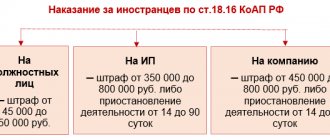Joint and several liability of spouses
The provisions of the Family Code (Chapter 45) state that each spouse is personally responsible for their obligations. However, creditors are not prohibited from demanding a share of the debtor’s property from common jointly acquired assets. Previously, it was assumed that the borrowed funds should have gone entirely to the needs of the family, so each spouse would have to answer. In addition, the spouses were jointly and severally liable if the debtor's assets were not sufficient to repay the debt.
The joint liability of spouses for debts implies their general obligation. A creditor who has not received payment from the borrower has the right to demand repayment from joint and several persons. That is, there is a situation when the husband’s debt is transferred to the wife.
But recently the situation has changed. Spouses can still be mutually involved in the fulfillment of obligations, but subject to certain conditions.
Legal regulation of a marriage contract
A marriage contract can determine any mode of ownership and disposal of common property and obligations. If this document was concluded in accordance with all legal requirements, then if any controversial issues arise, you should refer to the provisions of the agreement.
In order for a marriage contract to have legal force, it will need to be drawn up in writing in 3 copies and registered with a notary. One document will remain in the notary's office, the remaining copies will be given to the spouses.
The following conditions may be specified in a marriage contract:
- the sole owner of income (salary, pension and others) is their recipient;
- the costs of providing for the family are borne by one of the spouses;
- the sole owner of property acquired during the existence of a marriage relationship is recognized as the person who purchased the property and issued the title documentation for the object;
- determination of shares in the event of a divorce in amounts that differ from legal standards (not into two equal parts, but 80% by 20%, 96% by 4%, and so on);
- other conditions that differ from the provisions of the country's family legislation.
Download a sample marriage contract for citizens getting married
Legislative justification
Not long ago, there was a practice of full joint liability for debts incurred during the marriage. That is, husband and wife had to answer to creditors almost equally, regardless of the purpose of the loan.
Interested parties, and they, as a rule, were banks, had the right to demand foreclosure on the family’s common property in the event of non-payments. To many, this situation seemed unfair. Moreover, if cases were considered when the husband’s debt is transferred to the wife or vice versa, provided that the other half spent the borrowed funds unlawfully.
Husband and wife are not responsible for each other's debts, although there are some nuances
The Supreme Court decision of March 16, 2021 abolished the presumption of joint payment of debts in relation to spouses. Tax and loan debt cannot be transferred to the wife or husband.
Banks no longer have the right to demand repayment from other family members. The debt is recognized as common only if it is proven that the borrowed funds were taken for the needs of the family. In this case, the accused party will have to provide facts and evidence about family expenses. Previously, it was assumed by default that loans received from the bank were considered as funds for general needs.
Responsibility of spouses for general and personal obligations. Who will have to repay the debts and when?
There are many situations in judicial practice when:
- the spouse takes out a loan, but does not pay it back, and the other is forced to “pay off” the debt + interest;
- the husband gets into debt, but spends the money not on the family, but on himself or business;
- the marriage has been dissolved, but you are afraid of collections on other people’s debts;
- bailiffs collect the spouse’s property, but its value is small, so they claim part of “yours” and the like.
But what to do in such situations? You need to understand the nature of the loan agreement. It clearly states the parties: the lender and the borrower.
For example, Alfabank is the lender, and Ivan Ivanovich Sidorov is the borrower. If the court recognizes the debt as common, then a second person (spouse) appears on the borrower’s side.
This means that the essential terms of the contract are changed (which the court does not have the right to do). Accordingly, the debts that the spouse takes remain with him.
But law enforcement follows a different practice. Their hands are “untied by Article 45 of the Family Code, which is called “Foreclosing on the property of spouses.”
The main nuances that are spelled out in Art. 45 IC RF
- Collection of property for the obligations of one of the spouses can only be applied to his property. If there is not enough house/apartment in the property, then the creditor may demand the allocation of the share of the debtor spouse. In essence, the same division occurs as in the case of divorce. In the future, the creditor recovers this allocated share.
- Execution is made on different objects: a) on the common property of the spouses for common obligations; b) for the obligations of one spouse, if the court found that what was received under the obligations was used for the needs of the family. If there is not enough property, then the husband and wife are jointly and severally liable with their own property.
- Acquiring or increasing common property through criminal means (for example, for fraud, theft, bribes, you carried out repairs or bought a dacha) leads to the fact that foreclosure may be applied to the common property of the spouses or to part of it.
It turns out to be a strange situation . The law, as it were, protects spouses from paying debts on each other’s obligations. But at the same time, judicial practice recognizes in most cases all loans as general (courts simply do not have time to understand each individual situation).
You have to provide evidence that the husband/wife took out the loans and spent them on themselves and not on the family.
You may be better off contacting an experienced lawyer . For now, you just need to know that family law protects your interests and allows you not to repay your spouse’s loans. True, not everything is so simple.
Difference between personal and general obligations of spouses
| Comparison criterion | Personal debts | Total debts |
| Who takes out the loan? | 1 of the spouses. | 1 of the spouses. |
| Legal status | A person borrows, but spends only on himself, and not on the needs of his family. For example, he can finance a business, buy expensive gifts for family or friends, or undergo expensive training. | One spouse takes it, but for the needs of the family. For example, for the purchase of real estate, for home renovation, for the education of children or for other needs. |
| Who pays? | Only the one who took out the loan (because these are his personal obligations). | Both spouses. If property is divided upon divorce, then the amount of debts is also “divided” in proportion to the shares. But you can provide evidence that the loan is personal and not general. |
| When do they arise? | Before marriage (for example, the husband takes out a loan for the wedding). It is believed that the debt hangs only on him. During marriage, but for personal purposes. For debts encumbering personal property (for example, there is a debt for utilities on an inherited apartment). For obligations inextricably linked to the person (for example, a fine for causing harm). | During the period of marriage, when funds are spent on common joint needs. |
| Is it possible to recover from the other spouse? | If you stick to the general rule, then no. But there are also exceptions. | Yes, you can. But at the same time, you will have to study the norms of the Civil Procedure Code, the Civil Code, the Investigative Committee, as well as examples of judicial practice. |
An example from real practice. How Petrov repaid his debts (definition No. 5-KG14-162)
We have the Petrov family. Olga has accumulated debts to develop her business, and now Kormushka LLC is turning to her with a claim and returning the amount of the debt (everything was formalized with a receipt and an agreement on the final settlement of financial settlements).
“Feeder” indicates that at the time of concluding the loan agreement, Vladimir and Olga Petrov were married. Since the obligations were not fulfilled, Kormushka LLC requests, on the basis of clause 2 of Art. 45 of the RF IC to collect the amount of debt from the Petrovs jointly and severally.
Let us say right away that such a case was complex and went through several instances. You must understand that such disputes are complex, and the parties will have to prove the presence/absence of common debts.
The court of first instance recognizes Olga’s debt as general
In this case, they are guided by Art. 310, 314, 322, 807, 810 of the Civil Code of the Russian Federation, as well as Art. 34, 39 RF IC. When making its decision, the court proceeded from the fact that the Petrovs were married at the time of the loan. Accordingly, all the money received was spent on developing a joint business and improving living conditions.
The court recognized that the funds were a common debt . This means that the Petrovs must repay the loan together. The defendants did not agree with this approach of the judges and filed an appeal.
Usually, courts of first instance are very busy, so they do not “dig” into cases, but simply recognize the debts of the spouses as common. You will have to try hard and provide evidence to change the court's decision and established practice.
The appellate court also recognizes the obligations of one of the spouses as common
The motivation is the same as in the previous case. The fault is that the lawyers did not have time to study the case.
But the Petrovs’ lawyer was not satisfied with joint and several liability, so they had to go to the very top - the judicial panel for civil cases of the Supreme Court of the Russian Federation.
Pay attention to Article 323 of the Civil Code of the Russian Federation . It specifies the rights of the creditor in case of joint and several obligations.
The point is that Kormushka LLC could in this case demand fulfillment of obligations both from all debtors jointly and from any of them separately (in whole or in part). The Petrovs would be obligated until the obligation was fully fulfilled.
The Judicial Collegium for Civil Cases of the Supreme Court of the Russian Federation, on a cassation appeal, sends the case for re-examination
The panel overturned both the first instance ruling and the appeal rulings, and then sent the case to the first instance court for retrial.
At the same time, the judges indicated the main “jambs” made during the consideration of the case.
- Clause 3 art. 39 of the RF IC provides that the common debts of the spouses when dividing property are distributed among the awarded shares in proportion. For example, if you had joint property 50% to 50%, then you pay off your debts by half.
- Clause 2 art. 45 of the RF IC indicates cases of recovery of common property: a) for common obligations; b) for the obligations of one of the spouses, if everything received was used for the needs of the family.
It turns out that in order to hold Vladimir Petrov jointly and severally liable for the return of funds to Kormushka LLC, there must be several points:
- the obligation must arise on the initiative of 2 people;
- debt must be taken in the interests of the family.
If the second spouse does not know anything about your debts, he can indicate this in court and demand the abolition of joint and several liability . Otherwise, we seem to be infringing on his rights: the wife didn’t see the money, but should she return it?
But there is another point. Clause 2 art. 35 of the RF IC, as well as clause 2 of Art. 253 of the Civil Code of the Russian Federation establishes a presumption of the consent of the spouse. By default, it is considered that you perform all actions by mutual decision.
It is for this reason that in order to avoid controversial situations in credit institutions or when applying for an installment plan, they ask for the number of the wife/husband, call again and ask for consent to purchase expensive items or apply for a loan.
Family law does not contain a presumption of consent in the event of debt obligations with third parties . The essence of paragraph 1 of Art. 45 of the RF IC comes down to the fact that each spouse may have his own obligations/loans.
Accordingly, by default, DEBT CANNOT BE RECOGNIZED AS GENERAL only in the presence of the circumstances of paragraph 2 of Art. 45 IC RF . By the way, the party claiming to distribute the debt will have to prove “joint expenses and money to support the family.”
But the purpose of providing money to Olga and proof of spending becomes a legally significant circumstance in the Petrovs’ case. If the funds were spent on family and general needs, then the Petrovs are jointly and severally liable to the creditor and must repay the debt jointly.
If the money was spent only on Olga’s business, on her education, beauty, health, and so on, then only Petrova should pay off the debts (Vladimir is not responsible).
What conclusion can be drawn from this example?
- Courts often make decisions based on formal criteria (were married = shared debts).
- The defendants must take care to provide all the necessary evidence and find out the relevant circumstances of the case.
- Decisions of courts of different instances may contradict each other.
Joint and several liability of spouses means that you can repay the loan for your husband, but then file a recourse claim (i.e., the spouse must give you all the money that you paid for him).
The same mechanism exists with guarantors. Those. you return the money for the general debt, and then demand it from the debtor through a recourse claim.
In what cases will your spouse have to pay your debts?
Changes in legislation provide an answer to the question of whether a spouse is responsible for her husband’s debts. The financial obligations of each party will not be transferred to other family members unless it is proven that the expenses were not personal, but joint, this also includes alimony and promissory notes. Also, no debt obligations arise if the marriage is civil, that is, not registered.
In accordance with the new edition of the interpretation of articles of the law, during a divorce, credit obligations are not equally divided unless they are considered joint. You won't have to pay for your ex-husband's debts either. In addition, bailiffs do not have the right to oblige a spouse to pay the debt of her husband, who took money to develop the business.
If the debtor died, leaving financial obligations outstanding, relatives, including the spouse, will be responsible for the payments only if they entered into an inheritance. Moreover, after the death of the borrower, the heirs pay the debt only to the extent of the assets received. If there was no fact of inheritance, then material obligations do not arise.
You will have to answer for the debts of the spouses if you take out a loan for family needs.
However, in some cases, the husband's debts will have to be paid. This possibility appears in the following cases:
- If the spouse is the husband’s guarantor under the loan agreement. The loan must be repaid to the bank on a general basis.
- If it is proven that the debts arose as a result of general family needs. An example is the requirements of public utilities for services.
Personal obligations of spouses
This type of obligations includes those that were formed by one of the partners. They can be briefly described by the following list:
- debts incurred before the date of official registration of marriage;
- during the period of existence of a family union, but the purpose of the obligations is to satisfy personal needs;
- due to damage caused by the husband (wife) to another person;
- due to accumulated debt passed to one of the partners as a result of inheritance;
- due to failure to fulfill alimony obligations in relation to the previous family;
- other obligations relating personally to one of the spouses.
Responsibility for obligations
In accordance with Art. 45 of the RF IC, liability for property and obligations registered for personal use lies only with its owner. Penalty measures can only be applied to the spouse who is the owner of the obligations. If the debtor does not have the ability to repay the debt, then the creditor has the right to recover in whole or in part the debtor’s share of the joint property that was acquired by the latter with the spouse and would have gone to the defaulter during the divorce during the division of property. In the absence of a marriage contract, the size of the debtor's share and its alienation in favor of the creditor is regulated by Art. 38-39 RF IC. If an agreement has been drawn up between the spouses, the withdrawal procedure is determined by its clauses.
If during the court hearing it is established that the defaulter took out a loan to meet the needs of the entire family, then the penalty will be imposed on the common family property. This rule is determined by paragraph 2 of Art. 45 RF IC.
If the jointly acquired property is not enough to pay off the common debt of the spouses, then the creditor has the right to demand the alienation in his favor of the property that is the personal property of each of the couple. The amount of recovery is determined by the amount of debt. All or part of the debtors' property may be subject to confiscation. That is, the legislation provides for joint liability of the married couple in terms of repayment of debts that are recognized as common.
Damage caused to minors
General obligations also include the claim of the injured party for compensation for damage caused by a minor child of the couple. In this case, we mean damage of a property, financial nature, as well as damage to the life and health of the victim. Legislative regulation of compensation for damage caused is carried out by articles of the Civil Code, namely Art. 1073-1075. The penalties applied will depend on the age of the child and the degree of his legal capacity. The procedure for collecting jointly acquired or personal property from spouses is identical to a similar procedure in the event of non-payment of debt to a creditor.
For children aged 14 to 18 years, legislators have provided for the possibility of independently concluding transactions (or with parental permission). Minors will fulfill their obligations under concluded contracts and damage caused on their own. But if they do not have funds or other property to fulfill their obligations, then the parents must pay compensation.
Parents' obligations to compensate for damage caused by a minor child terminate after he or she reaches the age of 18 or before it occurs if the offender has a permanent source of income or other property that can be used to pay off the debt. In the future, after full compensation for the damage, the parents have the right to receive compensation from the child.
Collection of personal and common debts of spouses is possible only after a court decision. The methods for carrying out the seizure procedure are determined by Chapter 4 of the Federal Law of the Russian Federation dated July 21, 1997 “On Enforcement Proceedings and the Code of Civil Procedure”. Obligations for the collection of property are assigned to bailiffs. The process must be carried out on the basis of a writ of execution and consists of an inventory, seizure, seizure and sale of the debtor’s property.







